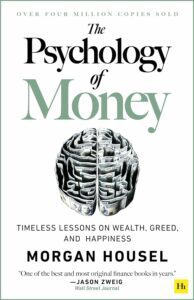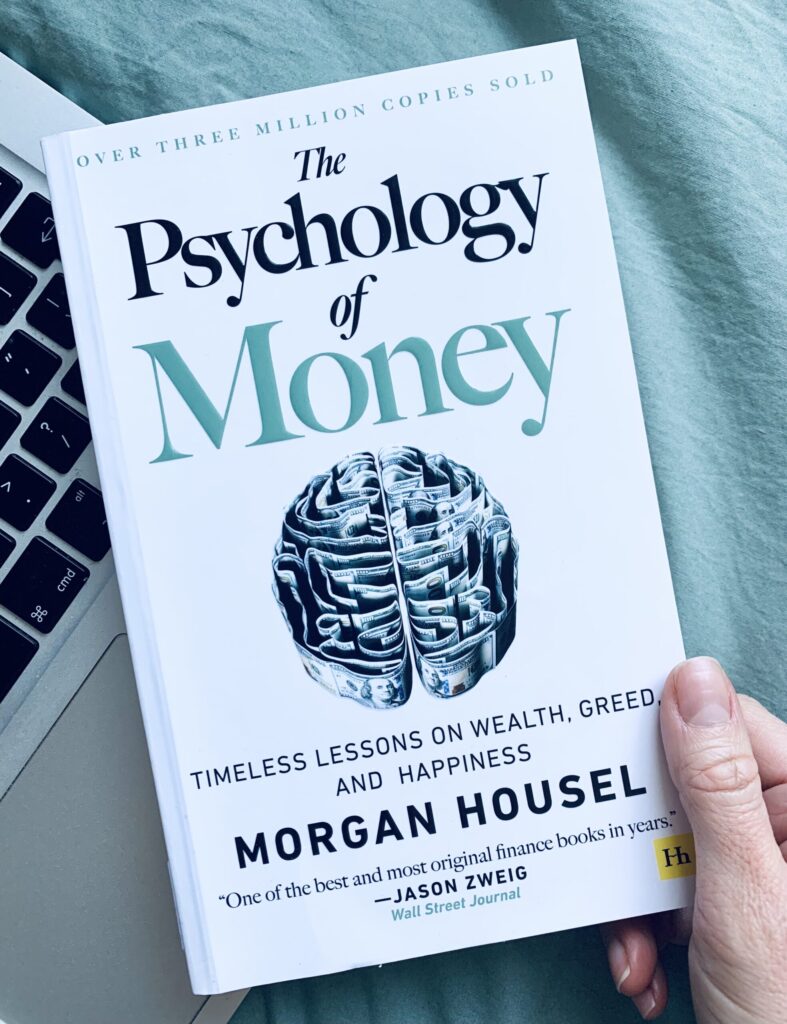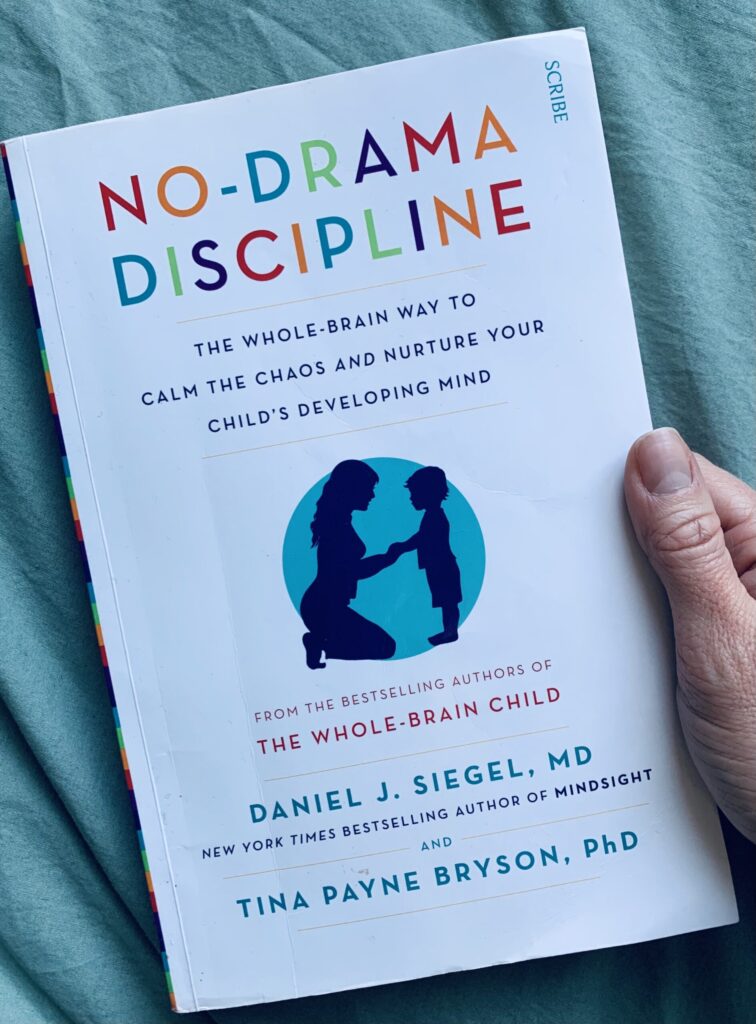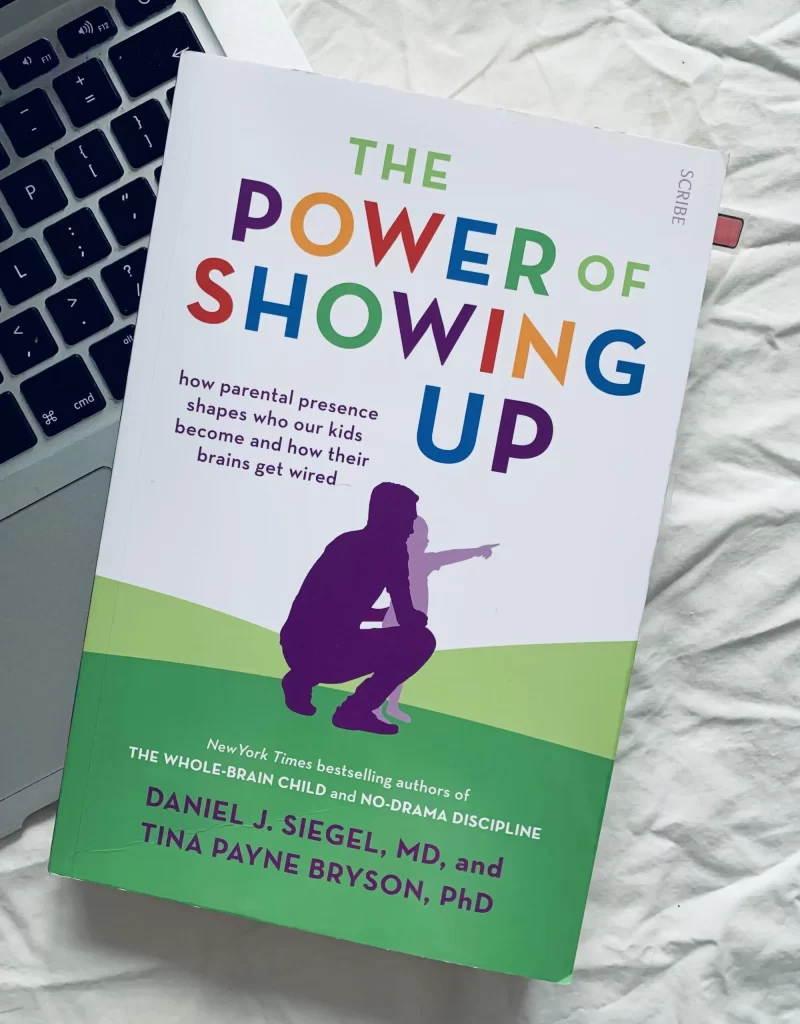 The Psychology of Money
The Psychology of Money
Timeless lessons on wealth, greed, and happiness
Morgan Housel
Harriman House (8 Sept. 2020)
About Morgan Housel
Morgan Housel is a partner at The Collaborative Fund. He’s the New York Times Bestselling author of The Psychology of Money and Same As Ever. His books have sold over five million copies and have been translated into more than 50 languages. He is a two-time winner of the Best in Business Award from the Society of American Business Editors and Writers, and winner of the New York Times Sidney Award. In 2022, MarketWatch named him one of the 50 most influential people in markets. He serves on the board of directors at Markel.
About The Book
“The premise of this book is that doing well with money has a little to do with how smart you are and a lot to do with how you behave. And behavior is hard to teach, even to really smart people.
A genius who loses control of their emotions can be a financial disaster. The opposite is also true. Ordinary folks with no financial education can be wealthy if they have a handful of behavioral skills that have nothing to do with formal measures of intelligence.”
One big gap in my life was my financial education. So, I decided to do something about it. I began my journey into personal finance with the classic “Rich Dad, Poor Dad” by Robert Kiyosaki, then delved into the bold perspectives of DeMarco’s “The Millionaire Fastlane.” And then, following numerous recommendations, I grabbed Housel’s “The Psychology of Money.”
Now, this book is one of the best personal finance books out there. And its main takeaway resonated deeply: it’s not just about what you know about money, but how you behave around it. Soft skills are more important than the technical side of money.
Drawing from his experiences as a financial journalist and investor, Morgan Housel digs deep into the psychological underpinnings that drive our financial decisions. Through 19 concise lessons filled with anecdotes, research, and real-life examples, he breaks down complex concepts into easily digestible nuggets of wisdom.
Key Insights:
Our Personal Experience Drives Our Financial Decision-Making
“Every decision people make with money is justified by taking the information they have at the moment and plugging it into their unique mental model of how the world works.
Those people can be misinformed. They can have incomplete information. They can be bad at math. They can be persuaded by rotten marketing. They can have no idea what they are doing. They can misjudge the consequences of their actions. Oh, can they ever.
But every financial decision a person makes, makes sense to them in that moment and checks the boxes they need to check. They tell themselves a story about what they’re doing and why they’re doing it, and that story has been shaped by their own unique experiences. […]
We all do crazy stuff with money, because we’re all relatively new to this game and what looks crazy to you might make sense to me. But no one is crazy—we all make decisions based on our own unique experiences that seem to make sense to us in a given moment.”
Morgan starts things off with a chapter called “No One’s Crazy,” diving into the basics of how our minds work when it comes to money. The main idea? Our past experiences shape how we view risk and make financial choices.
In simple terms, what you learned about money when you were younger sticks with you as you grow older.
For instance, my husband Dawid and I grew up in post-Soviet Eastern Europe. Back then, the go-to investment move was buying property or stashing money in a savings account, and that’s what guided our financial decisions for a long time.
But here’s the thing: it’s crucial to stay curious and adaptable (we’ll touch on that later) and keep learning. Remember what Kiyosaki said in Rich Dad, Poor Dad, “Learners are earners.”
Now, here’s a question for you: What were you taught about money when you were younger? And does it still hold true today?
P.S.: I also highly recommend checking out “Thinking, Fast and Slow” by Nobel Prize-winning psychologist Daniel Kahneman. It’s a must-read for every investor as it explores how our minds work and how cognitive biases affect our decision-making process.
The Hardest Financial Skill
“The hardest financial skill is getting the goalpost to stop moving.
But it’s one of the most important. If expectations rise with results there is no logic in striving for more because you’ll feel the same after putting in extra effort. It gets dangerous when the taste of having more – more money, more power, more prestige increases ambition faster than satisfaction. In that case one step forward pushes the goalpost two steps ahead. You feel as if you’re falling behind, and the only way to catch up is to take greater and greater amounts of risk.
Modern capitalism is a pro at two things: generating wealth and generating envy. Perhaps they go hand in hand; wanting to surpass your peers can be the fuel of hard work. But life isn’t any fun without a sense of enough. Happiness, as it’s said, is just results minus expectations.”
That’s from Chapter 3, titled “Never Enough.” Morgan starts it off with a story about Rajat Gupta’s rise and fall, showing us the danger of not having a sense of enough (you can read the story here).
Think of the sense of “enough” like a brake pedal in your life. When you use it wisely, tapping it when you’re speeding up, your journey stays smooth – your wealth grows alongside your happiness. But when you ignore it and keep accelerating for more power, money, or prestige, you might just crash into a wall of misery.
So, want to be happier and wealthier? Learn to feel content with “enough.” It’s tough, though. You’ve got to tame your ego, handle social comparisons, and know your core values and needs.
Less ego, more wealth.
P.S.: Morgan’s happiness formula is spot-on for explaining how money affects happiness!
Happiness = results – expectations
Confounding Compounding (and Warren Buffet’s Wealth Timeline)
“More than 2,000 books are dedicated to how Warren Buffett built his fortune. Many of them are wonderful. But few pay enough attention to the simplest fact: Buffett’s fortune isn’t due to just being a good investor, but being a good investor since he was literally a child.
As I write this Warren Buffett’s net worth is $84.5 billion. Of that, $84.2 billion was accumulated after his 50th birthday. $81.5 billion came after he qualified for Social Security, in his mid-60s.”
Let that sink in for a moment. These numbers are mind-blowing. Warren Buffett is the living epitome of the compound effect.
The lesson from the greatest investor of all time? Extend your time horizon, aim for consistently good returns that you can stick to over the long haul, and let compounding work its magic.
That brings us to the next idea.
Getting Wealthy vs Staying Wealthy
“There are a million ways to get wealthy, and plenty of books on how to do so.
But there’s only one way to stay wealthy: some combination of frugality and paranoia. […]
Getting money requires taking risks, being optimistic, and putting yourself out there.
But keeping money requires the opposite of taking risk. It requires humility, and fear that what you’ve made can be taken away from you just as fast. It requires frugality and an acceptance that at least some of what you’ve made is attributable to luck, so past success can’t be relied upon to repeat indefinitely.[…]
The ability to stick around for a long time, without wiping out or being forced to give up, is what makes the biggest difference. This should be the cornerstone of your strategy, whether it’s in investing or your career or a business you own.”
Most people aim to get rich, and some even level up to focus on building wealth (yes, those are different things). But here’s the kicker: not everyone who gets wealthy stays wealthy.
See, getting wealthy and staying wealthy are two different skills. And mastering both is key.
To see your wealth grow and witness the magic of compounding, you’ve got to have a mindset that keeps you in the game for a long time. Morgan calls it “the survival mindset,” and it boils down to three things:
-
“More than I want big returns, I want to be financially unbreakable. And if I’m unbreakable I actually think I’ll get the biggest returns, because I’ll be able to stick around long enough for compounding to work wonders.”
-
“Planning is important, but the most important part of every plan is to plan on the plan not going according to plan.”
-
“A barbelled personality-optimistic about the future, but paranoid about what will prevent you from getting to the future—is vital.”
So, what’s the secret sauce to staying in the game? It’s a mix of frugality, paranoia, and leaving room for error.
Controlling Your Time Is The Highest Dividend The Money Can Offer
“The highest form of wealth is the ability to wake up every morning and say, “I can do whatever I want today.”
People want to become wealthier to make them happier.
Happiness is a complicated subject because everyone’s different.
But if there’s a common denominator in happiness a universal fuel of joy – it’s that people want to control their lives.
The ability to do what you want, when you want, with who you want, for as long as you want, is priceless. It is the highest dividend money pays.”
That’s probably the biggest driver to start saving, investing, and growing your wealth. Some say money can’t buy happiness, but it sure can buy you the freedom to craft your own happiness habits.
P.S.: If you’re keen to dive deeper into the science of happiness, check out our notes on “The How of Happiness” by Sonja Lyubomirsky, “Happier” by Tal Ben-Shahar, “Flourish” by Martin Seligman, and “The Happiness Project” by Gretchen Rubin.
The Only Constant is Change
“Long-term financial planning is essential. But things change— both the world around you, and your own goals and desires. It is one thing to say, “We don’t know what the future holds.” It’s another to admit that you, yourself, don’t know today what you will even want in the future. And the truth is, few of us do. It’s hard to make enduring long-term decisions when your view of what you’ll want in the future is likely to shift.”
One key idea in the book is that we have to be flexible when it comes to financial decisions. Change is the only constant. The world’s always evolving – some things, like COVID or wars, are tough to predict. Plus, your life changes, and so do you. The point here is to plan, knowing that your plan might not always go as planned.
And let’s talk about historical data. Lots of investors rely on it, trying to fit it into today’s context. But here’s the catch: that can be a risky move. Morgan Housel nails it when he says:
“An interesting quirk of investing history is that the further back you look, the more likely you are to be examining a world that no longer applies to today. Many investors and economists take comfort in knowing their forecasts are backed up by decades, even centuries, of data. But since economies evolve, recent history is often the best guide to the future, because it’s more likely to include important conditions that are relevant to the future.”
Sure, some psychological aspects stay the same over time – like people’s relationship with greed and fear. But when it comes to specifics – trends, trades, sectors, market moves – it’s all an ever-evolving story.
Keep this in mind.
Become OK With a Lot of Things Going Wrong
“You can be wrong half the time and still make a fortune, because a small minority of things account for the majority of outcomes. No matter what you’re doing with your money you should be comfortable with a lot of stuff not working. That’s just how the world is. So you should always measure how you’ve done by looking at your full portfolio, rather than individual investments. It is fine to have a large chunk of poor investments and a few outstanding ones. That’s usually the best-case scenario. Judging how you’ve done by focusing on individual investments makes winners look more brilliant than they were, and losers appear more regrettable than they should.”
I love this wisdom. Some things will go sideways, you’ll mess up, and the world might even flip upside down—and you know what? That’s all okay. There’ll be some kick-ass moments to balance it out.
The point? Try out different things, diversify your portfolio, and think long-term.
Oh, and one more thing: don’t aim to be coldly rational when making financial decisions. Just shoot for being pretty reasonable – it’s way more realistic.
Define the Game You’re Playing
“A takeaway here is that few things matter more with money than understanding your own time horizon and not being persuaded by the actions and behaviors of people playing different games than you are.
The main thing I can recommend is going out of your way to identify what game you’re playing.
It’s surprising how few of us do. We call everyone investing money “investors” like they’re basketball players, all playing the same game with the same rules. When you realize how wrong that notion is you see how vital it is to simply identify what game you’re playing.”
That’s a crucial thing to keep in mind when you’re getting financial advice from others. Are they even playing the same game as you? And hey, do you even know what game you’re playing? What’s your time horizon?
Take property, for instance – flipping and renting are like two different sports. And in crypto world, trading and “hodling” are different ballgames. Same goes for stocks.
And here is more wisdom from Morgan:
“If you want to do better as an investor, the single most powerful thing you can do is increase your time horizon.”
Really got me thinking.
Action Steps For You:
- Save money. Start by setting up a regular savings plan, even if it’s just a small amount each month. Automate your savings so that it’s taken care of before you have a chance to spend it. Remember, every little bit counts, and saving consistently over time can lead to significant financial growth. And yes, you don’t need a reason to save.
- Increase your time horizon. Shift your focus from short-term gains to long-term success by increasing your time horizon. Instead of trying to make quick profits or timing the market, adopt a patient approach to investing and financial planning. Think about your goals in terms of years or even decades, allowing the power of compounding to work in your favour.
- “Go out of your way to find humility when things are going right and forgiveness/compassion when they go wrong.” Recognize that it’s never as great or terrible as it seems. By acknowledging the power of luck and risk, you’ll shift focus to what you can control, improving decision-making and finding suitable role models for success.
Quotes From The Book:
“There are books on economic cycles, trading strategies, and sector bets. But the most powerful and important book should be called Shut Up And Wait. It’s just one page with a long-term chart of economic growth.”
“Good investing is not necessarily about making good decisions. It’s about consistently not screwing up.”
“Spending money to show people how much money you have is the fastest way to have less money.”
“Wealth is just the accumulated leftovers after you spend what you take in. And since you can build wealth without a high income, but have no chance of building wealth without a high savings rate, it’s clear which one matters more.”
“There is no reason to risk what you have and need for what you don’t have and don’t need.”
“A gap between what could happen in the future and what you need to happen in the future in order to do well is what gives you endurance, and endurance is what makes compounding magic over time. Room for error often looks like a conservative hedge, but if it keeps you in the game it can pay for itself many times over.”



